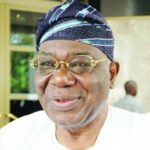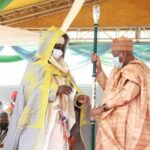
In January 2020, there was an atmosphere of anticipation at the Le Meridien Hotel in the city of Khobar, Saudi Arabia, as 100 students from 29 countries, including Nigeria, arrived to take part in the Education Week Programme of the International Petroleum Technology Conference. Only the best final-year undergraduate science, geoscience and engineering students from around the world had been selected for the programme. I was thrilled to work with The IPTC Young Member Activities Committee members – responsible for coordinating the Week – to ensure a seamless event. Many of the students were in Saudi Arabia for the first time, and we wanted to give them the opportunity to interact with a number of major industry employers who were looking to recruit the best talent from institutions around the world.
I was not involved in the student selection process. To my surprise, some of the Nigerians came from private institutions, including Nile University, Igbinedion University, and even a faith-based institution – Mountain Top University. The composition of the Nigerian delegation prompted me to reflect on the role of our private universities in preparing young people for a fulfilling life. I have no doubt now that these private institutions are helping to stimulate, diversify and complement our higher education sector.
I was pleased that representatives of several global companies were on hand during the Education Week to answer questions and offer unique views on the journey of a professional in the industry. In one of the sessions, a senior professional explained the role of new technologies in the oil and gas industry, and discussed how some companies were harnessing the power of the Fourth Industrial Revolution with technologies that include big data, advanced analytics, and artificial intelligence. For many of the Nigerian students, this engagement session was priceless; what they had learnt in class back home now made more sense. Importantly, they had a clear insight into the industry they were about to join, and they looked forward to returning to their universities with a positive story to relate to their fellow students.
We also ensured the students had a taste of Saudi culture during their visit to the King Abdulaziz Centre for World Culture also known as iThra (the Arabic word for enrichment). This Centre uses science, innovation, arts and culture to inspire creativity and love of learning. One of the most environmentally-friendly buildings in the region, iThra made TIME Magazine’s 2018 list of world’s greatest places. At the city of Al Ahsa, the students had a desert camp lunch, and visited the Qaraa Caves. Al Ahsa is home to unmatched oil and gas reserves, and also a top destination spot for tourists. As I chaperoned the students, it was obvious that the range of activities we had planned ahead was helping them to explore their field in new and different ways. I was relieved. The Education Week was held virtually in 2021, due to the pandemic. Preparations are ongoing for this year’s face-to-face event which will also take place in Saudi Arabia, this February.
The Education Week reminded me of another time I worked with talented Nigerian students abroad. In 2014, the University of Benin and the University of Lagos were invited to the Shell Eco-marathon, a student competition that seeks to spark debate about the future of mobility and fuel efficiency. For this contest, brightest minds in science and engineering departments were tasked with designing and building ultra-energy-efficient vehicles, competing to see how far they could travel on one litre of fuel. The European edition of the eco-marathon took place in Rotterdam, the Netherlands, and I was humbled to be appointed a project manager for the team of young engineers from Nigeria.
I had the privilege of following the journeys of the students, and studied how they developed as engineers during the competition. Working on their car for several hours a day, day in and day out, tested the budding engineers’ technical knowledge and troubleshooting skills, not to mention their stamina. Everything that could go wrong went wrong, but the students remained calm throughout. The University of Benin named their car “Tuke-Tuke” ― an ode to the popular minibuses in Benin City. In constructing their vehicle, the budding engineers sourced materials locally, like the brake pad, which was produced from palm kernel, and the interior fabric, which was made from adire material. I was astounded at their creativity.
In Rotterdam, Team Nigeria had one final hurdle before they could get on track to compete: technical inspection. Officials of the eco-marathon needed to inspect safety features of the cars and adherence to the competition’s strict rules. Every vehicle was required to have a solid floor that completely separated the driver’s compartment from the road. The vehicle body needed to fully surround the driver, so no open-top compartments were permitted. And the list went on. The stakes were high for teams ― failure of the test meant they would not be allowed on track. Our young engineers didn’t fret, but meticulously reworked their cars based on the observations of the assessors. Finally, it was a pass! They proved to the world that given the exposure, Nigerian students can hold their own in science, technology and innovation ― this can-do spirit won the heart of everyone at the competition.
The resourcefulness and resilience of the engineering students reflect who we are as Nigerians. Since independence, it has been our people who have played the greatest role in our progress as a nation. As I look to the future, I am highly aware that our people have always been, and will remain, our greatest asset. We have all seen how the discovery of oil has enriched the nation’s coffers. Now, climate change is the defining challenge of our time. Experts have warned the world is “already well on the way” to global temperature rises of 1.5C. But I have faith in our people. Throughout my career in the oil industry, I have seen how human ingenuity has allowed new economic models to thrive. I do believe the current atmosphere of concern around climate change is a great opportunity for Nigerians to offer a vision of what can be achieved through engineering solutions. I see a new era for energy in Nigeria, one driven by talented engineers.
Isong, PhD, is based in the Middle East. Twitter: @anietie_isong
Copyright PUNCH.
All rights reserved. This material, and other digital content on this website, may not be reproduced, published, broadcast, rewritten or redistributed in whole or in part without prior express written permission from PUNCH.
Contact: [email protected]













